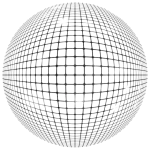Delta-8 THC, a synthetic cannabinoid similar to Delta-9 THC found in marijuana, offers a milder high and potential therapeutic benefits. Often compared to the "Kratom Train Wreck" strain due to its energizing and relaxing effects, it provides clear-minded calmness not found in natural cannabis sources like Train Wreck. With precise dosage control, Delta-8 appeals to users seeking tailored experiences for pain relief, anxiety reduction, and sleep aid. However, its legal status and potential risks spark debate, contrasting with the well-studied and legally clearer kratom Train Wreck variants.
“Unraveling the mysterious world of Delta 8 THC, a synthetic cannabinoid gaining traction in the market, especially in the form of the popular ‘Kratom Train Wreck’ strain. This compound, similar to Delta 9 THC but with distinct psychological effects, offers a unique experience. Our article explores the composition and psychoactive attributes of Delta 8 THC, its potential benefits for therapeutic use, and the safety precautions and legal aspects surrounding this emerging trend, providing a comprehensive guide to understanding this synthetic cannabis-like compound.”
- Understanding Delta-8 THC: A Synthetic Cannabinoid
- The Kratom Train Wreck: A Popular Strain and Its Composition
- Psychoactive Effects of Delta-8 THC
- Potential Benefits and Therapeutic Applications
- Safety Considerations and Legal Status of Delta-8 Products
Understanding Delta-8 THC: A Synthetic Cannabinoid
Delta-8 THC, a synthetic cannabinoid, has gained recent attention in the world of psychoactive substances, often compared to its more well-known counterpart, Delta-9 THC found in marijuana. This compound is structurally similar to Delta-9 but with a subtle difference: it binds to our body’s endocannabinoid receptors in a slightly different way, leading to distinct effects. While both compounds can induce euphoria and relaxation, Delta-8 tends to offer a milder high with potential therapeutic benefits.
Often dubbed the “Kratom Train Wreck” of cannabinoids due to its unique combination of effects, Delta-8 THC has become a popular choice for those seeking alternative options. It provides a balance between the energizing and relaxing properties, allowing users to enjoy a clear mind while still experiencing a sense of calm. The synthesis of this compound allows for precise control over dosage and potency, making it an attractive option for individuals looking for a more tailored psychoactive experience compared to natural cannabis sources like Kratom Train Wreck.
The Kratom Train Wreck: A Popular Strain and Its Composition
The Kratom Train Wreck is a popular strain known for its potent and unique composition. It’s a synthetic compound derived from the kratom plant (Mitragyna speciosa), but unlike its natural counterparts, it undergoes chemical modifications to enhance certain effects. This specific strain typically contains delta-8 tetrahydrocannabinol (Δ8-THC), a cannabinoid that produces psychoactive properties similar to those of delta-9 THC but with potentially less intense side effects.
Train Wreck’s popularity stems from its reported ability to induce feelings of euphoria, relaxation, and heightened sensory perception. The strain is often sought after for its potential therapeutic benefits, including pain relief, anxiety reduction, and sleep aid. Its composition allows for a more controlled experience compared to other kratom strains or cannabis products, making it an attractive choice for those looking for specific effects without the full spectrum of cannabinoids present in natural cannabis plants.
Psychoactive Effects of Delta-8 THC
Delta-8 THC, a synthetic compound derived from hemp, has gained attention for its psychoactive properties similar to cannabis. It offers a unique experience that some users describe as more subtle and less intense than traditional Delta-9 THC. The effects can include heightened senses, relaxation, and a distinct mental clarity, often reported as an improved focus and creativity. This is particularly appealing to those seeking an alternative to conventional cannabis strains, especially for medical purposes.
One comparison often made is with kratom train wreck, a popular kratom strain known for its potent and complex effects. Delta-8 THC shares some similarities, providing a stimulating yet calming experience. Users may feel more connected to their surroundings while also enjoying a sense of detachment, making it a potential tool for self-exploration and creative pursuits. Its legal status and relatively mild reputation make it an intriguing option for individuals looking to experiment with psychoactive substances.
Potential Benefits and Therapeutic Applications
Delta 8 THC, a synthetic compound similar to cannabis, has gained attention for its potential therapeutic benefits. Often compared to Kratom Train Wreck in terms of effects, Delta 8 offers a unique profile that may appeal to those seeking alternative treatments. Research suggests it could be effective in managing anxiety and stress, providing pain relief, and even exhibiting anti-inflammatory properties.
Its psychoactive nature allows for a heightened state of relaxation without the intense cognitive impairment sometimes associated with traditional cannabis. This makes Delta 8 an intriguing option for individuals looking for a more subtle yet beneficial experience. As with any substance, responsible use and further scientific exploration are crucial to unlocking its full potential and ensuring safety in therapeutic applications.
Safety Considerations and Legal Status of Delta-8 Products
The safety considerations surrounding Delta-8 THC products are a topic of ongoing debate. While some users report pleasant, cannabis-like effects, including relaxation and heightened sensory perception, the lack of extensive research on this compound poses significant risks. Delta-8 THC can interact with other medications, leading to potential adverse reactions, and its production methods may include residual solvents or contaminants that could be harmful when ingested. Moreover, as a relatively new entry in the market, the long-term effects of regular consumption remain largely unknown.
Legally, the status of Delta-8 products is complex and varies by region. In some areas, it falls into a legal gray area due to its similarity to hemp and cannabis. Certain states have explicitly banned it, while others allow the sale and possession under specific conditions. The varying regulations make it challenging for consumers to know what they are legally entitled to, particularly when comparing it to its well-studied counterpart, kratom (often sold as ‘Kratom Train Wreck’ variants), which has a more established safety profile and clearer legal standing.
Delta-8 THC, a synthetic derivative from the Kratom Train Wreck strain, offers unique psychoactive effects with potential therapeutic benefits. While its legal status varies globally, further research and consumer education are crucial to navigating this emerging compound. Understanding the safety considerations and responsible use of Delta-8 THC can unlock its promise as an alternative option for those seeking relief without traditional cannabis’s side effects.






